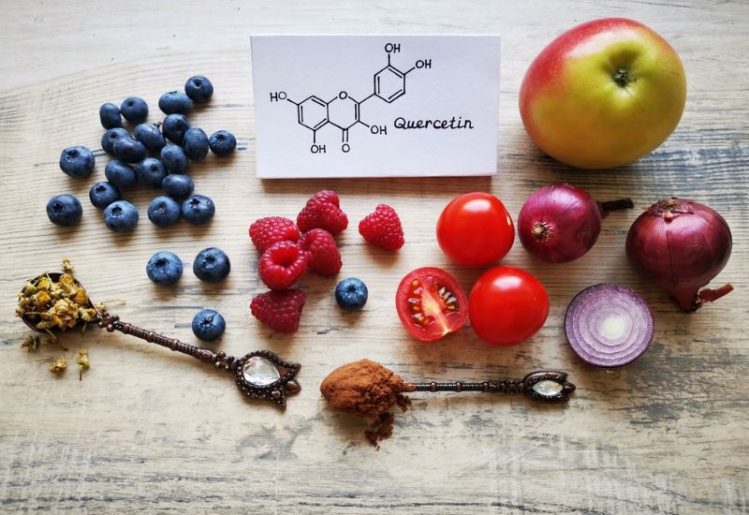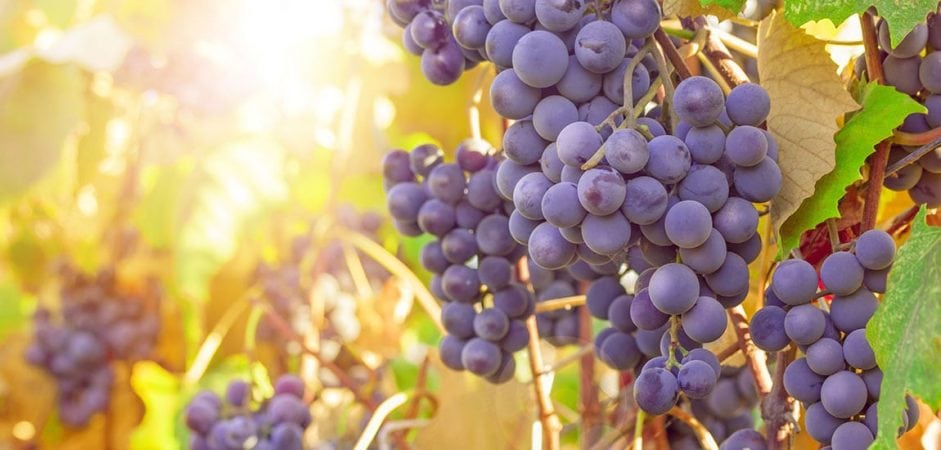Quercetin Benefits Include Mitigating Effects of Sleep Deprivation
Quercetin is a flavonoid antioxidant that is from the family known as "polyphenols," and is found naturally in many fruits and vegetables. Because it is known as a plant pigment, you can expect to find it in the most deeply colored produce. Quercetin is also considered to possess antiviral properties.
You owe it to your health to look into the many quercetin benefits, including its newly revealed ability to mitigate sleep deprivation.
Surprising Quercetin Benefits
Because there are so many, it is challenging to list all of the quercetin benefits. Here are just a few of the highlighted benefits you should know about.
Mitigates Effects of Sleep Deprivation
 Some of the most exciting recent revelations about quercetin reveal how the antioxidant can mitigate the most common negative impacts of sleep deprivation. Scientists hypothesize that the powerful antioxidant properties of the compound help to boost your mood even when sleep deprived. A recent study using mice demonstrated the use of quercetin reduced anxiety levels triggered by lack of sleep in the animals. In addition, quercetin may also improve the impact of sleep deprivation on symptoms of depression and memory performance.
Some of the most exciting recent revelations about quercetin reveal how the antioxidant can mitigate the most common negative impacts of sleep deprivation. Scientists hypothesize that the powerful antioxidant properties of the compound help to boost your mood even when sleep deprived. A recent study using mice demonstrated the use of quercetin reduced anxiety levels triggered by lack of sleep in the animals. In addition, quercetin may also improve the impact of sleep deprivation on symptoms of depression and memory performance.
Offers Relief from Allergies
Quercetin has been shown to reduce the amount of histamine released by the body. This reduction helps to control allergy symptoms while also lowering the risk of health conditions such as allergic rhinitis. The natural antihistamine properties found in quercetin partner with its anti-inflammatory impacts to make it a powerful tool in the fight to get allergies under control.
Reduces Unhealthy Inflammation
Inflammation is a trigger for some of the most concerning health conditions, including cognitive disorders, autoimmune issues, heart disease and cancer. The potent antioxidant abilities of quercetin help to keep inflammation under control while also preventing oxidation and the release of harmful free radicals.
Supports a Healthy Heart
There are numerous ways that quercetin can benefit the heart. In addition to its ability to reduce inflammation, the nutrient has also shown benefits in protecting against heart disease and stroke, largely because it is able to help maintain cholesterol levels already within normal ranges and support healthy blood pressure within normal ranges.
Improves Athletic Endurance and Supplies Energy
Because quercetin is able to promote healthy blood circulation, it makes sense that researchers have found that its use may also improve athletic endurance and boost energy stores. A dedicated study in 2012 indicated that athletic performance and endurance both saw gains when taking a quercetin supplement. A few years later, another study showed that quercetin use increased the number of calories burned at rest while also improving lean body mass percentages and hydration levels.
Protects Against Signs of Aging
Adequate amounts of quercetin can also make you look as good as you feel. Quercetin improves the appearance of the skin due to its antioxidant and anti-inflammatory characteristics. While you can never stop the aging process entirely, the use of quercetin can help to reverse the damage that your skin sees as you grow older. In addition, medical researchers have found that the use of quercetin may be instrumental in treating chronic skin issues such as dermatitis.
Helps Protect Against Unhealthy Cell Growth
New research has demonstrated a connection between eating foods rich in quercetin with a lower risk of developing lung cancer. Although it is still too early to draw a direct correlation, scientists are hopeful that the use of quercetin may be another way to guard against cancer.
How to Boost Your Intake of Quercetin
Now that you know all of the ways that quercetin can benefit your health, you may be wondering how you can get more of this nutrient into your diet.
Dietary Sources
 Eating a diet rich in colorful fruits and vegetables is one of the best ways to boost your intake of quercetin. Grapes, apples, berries, cherries, leafy greens, red onions and tomatoes are also good produce sources that contain plentiful amounts of quercetin. You will also find the nutrient in beans and other types of legumes. Need an excuse to enjoy a glass of wine? You will find quercetin in red wine as well as in green tea.
Eating a diet rich in colorful fruits and vegetables is one of the best ways to boost your intake of quercetin. Grapes, apples, berries, cherries, leafy greens, red onions and tomatoes are also good produce sources that contain plentiful amounts of quercetin. You will also find the nutrient in beans and other types of legumes. Need an excuse to enjoy a glass of wine? You will find quercetin in red wine as well as in green tea.
Supplementation
You can ensure that you are getting enough quercetin in your diet by taking a supplement that includes this flavonoid. Popular supplements that include quercetin are Mitochron, Resverchron, and Fertilichron. Choosing a targeted supplement that boasts quercetin will give you the assurance that you need to know that you are leveraging all of these benefits.
Herbs
You will also find quercetin in some of the most commonly used herbs. Sage, ginkgo biloba, and St. John's Wort are particularly good choices.
Do not let the many benefits of quercetin escape you. Being intentional about consuming adequate amounts of this flavonoid is a good health goal to add to your list.





